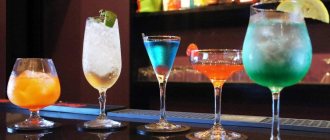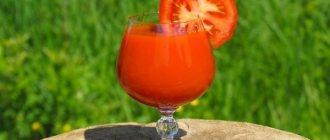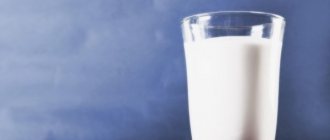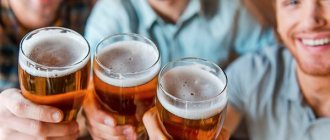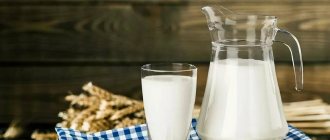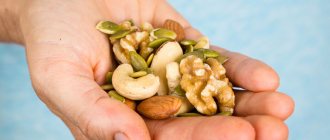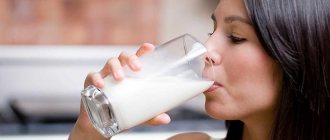Home>Articles>Alcohol and gastritis: is it possible and what kind to drink if you have a chronic disease?
quick menu (hide)
- Alcohol for gastritis in the acute stage
- Alcohol for gastritis of the stomach in remission
- How much and what kind of alcohol is possible for gastritis
- Alcoholic gastritis: what is it?
- Conclusions and recommendations for alcohol lovers
Gastritis is such a common disease that patients often stop paying attention to it. They are sure that they do not die from this disease, and it is almost impossible to get rid of it. They continue to live, abusing alcohol, forgetting about food restrictions. It would be better to find out whether you can drink alcohol with gastritis and what happens in the stomach when ethanol gets there.
Helicobacter pylori is the main causative agent of the disease, although there are other causes. The disease occurs in different forms. Acute gastritis is accompanied by digestive disorders and attacks of heartburn. The pathology, which has become chronic, practically does not manifest itself, and with prolonged remissions, general relief occurs. In order not to harm yourself, you need to know the effect of alcohol on gastritis and follow the recommendations of doctors.
Alcohol for gastritis in the acute stage
As soon as gastritis worsens, the mucous membrane becomes inflamed. Any alcohol-containing drink that gets on the walls of the stomach burns them. The higher the strength, the stronger the burn. Drinking alcohol is dangerous to health, but there are ways to mitigate its effects on the mucous membranes:
- you need to choose the right snack;
- you cannot drink alcohol on an empty stomach;
- You can first eat a sandwich with butter.
But there are cases when alcohol is strictly contraindicated for gastritis. It is not allowed to drink alcohol if the patient is taking antibiotics. If you have ulcers of any size, you should not drink vodka or wine. Drinks burn very strongly and may cause internal bleeding.
What alcohol can you drink while dieting?
If you really want, you can combine alcohol and diet. In this case, it is necessary to limit the amount of alcohol, as well as wisely select its type and quality.
First of all, it is worth considering that any alcohol is a fairly high-calorie product. Its energy value is about 7 kcal per 1 g of product. It is worth knowing that due to the peculiarities of the chemical composition, such calories are easily digestible. Therefore, the body will primarily consume the energy obtained from alcohol, and substances obtained from food will be stored “in reserve” in subcutaneous fat.
Accordingly, if you regularly drink alcohol while losing weight, it is unlikely that you will be able to achieve real weight loss. It is for this reason that in most cases on a diet you are not allowed to drink alcohol at all.
The answer to the question of what is best to drink on an alcohol diet can be formulated as follows:
- The most preferred type of alcoholic drink while dieting is red wine.
- Dark beer comes next in terms of negative impact on the body.
- Liqueurs are superior to both of these types of drinks in terms of harm.
Also, when choosing which alcohol is best to drink while dieting, it is advisable to stick to a pure drink, avoiding cocktails.
To answer the question of which alcohol is lower in calories during a diet, it is advisable to study the table for calculating kcal for the most common types of drinks.
The level of energy value is indicated per 100 g of product.
- Champagne:
- dry - 65 Kcal;
- semi-dry - 78 Kcal;
- semi-sweet - 88 Kcal;
- brut – 50-55 Kcal.
- Wine
- dry – 65 – 76 kcal;
- semi-dry – 78 kcal;
- semi-sweet – 88 kcal;
- dessert – 172 kcal.
- Beer:
- light, 1.8% - 29 kcal
- light, 2.8% - 34 kcal
- light, 4.5% - 45 kcal
- Vodka:
- rice - 250 kcal;
- anise – 297 kcal,
- tequila – 274 kcal.
- High calorie drinks:
- whiskey - 300 kcal;
- gin - 325 kcal;
- Calvados - 325 kcal;
- rum - 375 kcal;
- liqueur - 325 kcal;
- cherry liqueur – 300 kcal.
Alcohol for gastritis of the stomach in remission
Strict adherence to the diet and compliance with all doctor’s instructions leads to victory over gastritis. But it’s too early to rejoice, because the disease has not gone away forever, but is in remission. As long as nothing temporarily bothers them, former patients feel relieved. In the absence of pain or nausea, sometimes they allow themselves to sit at the table with company.
Drinking alcohol with gastritis, even in remission, is dangerous. As soon as ethyl alcohol reaches the stomach, the secretion of gastric juice increases. If this is normal for a healthy person, then it is undesirable . The released hydrochloric acid hits the walls, causing irritation. From the stomach, alcohol enters the blood vessels and spreads throughout the body through the blood. Attention weakens, vigilance becomes dull. The patient often breaks his diet, which is also unacceptable.
Attention!
The main danger is that exacerbation of gastritis must be treated with drugs that are incompatible with alcohol, so you will have to endure pain for several days until all the ethanol leaves the body.
Is it possible to drink alcohol while dieting?
Any diet presents some stress. A significant limitation in the volume and list of foods consumed in many cases causes a decrease in body tone.
Alcohol causes increased stress on all body systems. In addition to the need to break down and remove ethanol breakdown products, an increase in the level of alcohol in the blood causes disturbances in the digestion process. This will cause a deterioration in the process of assimilation of consumed foods, which, in conditions of energy deficiency, will further weaken the body.
Considering the above facts, alcoholic drinks are an undesirable addition to any diet.
At the same time, the answer to the question of whether it is possible to drink alcohol on a diet depends on the volume and frequency of the intended consumption of alcohol, as well as the degree of strictness of the diet.
If you are planning a one-time feast, during which you can take a symbolic amount of alcoholic beverages, this will not cause any problems.
But if, against the backdrop of strict dietary restrictions, you regularly drink a sufficiently large amount of alcohol, health problems cannot be avoided.
You also need to consider the level of calorie deficit on the diet you are using. Provided that the restriction concerns mainly the list of products used, a small dose of alcohol may go unnoticed. But on strict diets, alcohol can cause serious health problems.
How much and what kind of alcohol is possible for gastritis
Even in moderate quantities, it is undesirable to drink alcoholic beverages if you have problems with the gastrointestinal tract. However, situations are different, and sometimes it is impossible to refuse a glass. Centuries-old traditions have to be maintained even by those who are not entirely healthy. Let's consider how to drink alcohol with chronic gastritis or in remission, so as not to harm yourself.
- After completing the course of treatment and waiting for the condition to stabilize, you can allow yourself to drink a high-quality, expensive, high-strength drink (50-100 ml) approximately once a month. This could be elite vodka or cognac. You can indulge in a glass of good red wine, but also only on holidays. Dry wine contains antioxidants that are beneficial for the body and mucous membranes in particular. Under no circumstances should you drink cocktails, champagne, sparkling wines, bottled beer, or liqueurs.
- German doctors allow patients with gastritis to drink unfiltered beer. However, this recommendation only applies to high-quality drinks made from malt and hops. The European nothing like canned beer , so this advice is only for those who can afford to treat themselves to a foamy beer from a real brewery once every 3 weeks (no more than 1 liter).
- You should not drink alcohol before eating. First you need to fill your stomach with food, then drink the drink. This makes it possible to soften its effect on the mucous membrane.
- The specified alcohol standards are considered conditional. For some patients, 30 ml is enough to feel slightly intoxicated. In this case, you need to stop so as not to harm yourself.
PP and alcohol
Before you decide whether to drink alcohol, you should know the following facts about alcohol:
- Alcohol contains calories. Not everyone knows that alcohol and water are not the same thing. Often the most common mistake people make when counting calories is not counting the calories contained in alcohol. At first glance, it’s hard to imagine that one harmless glass of wine or champagne contains about 176 calories! How many glasses of champagne can you drink in an evening? Just a couple of glasses and you have already replaced a healthy dinner with alcohol, without even knowing it. The same situation applies to other strong drinks. Vodka, whiskey, rum and other similar drinks contain more than 230 calories per 100 grams, and they form the basis for the cocktails that girls love so much. The situation with cocktails is much more complicated, because due to the complex composition, the calorie content of such drinks can increase significantly. Sweet syrups, high-calorie liqueurs, and juices significantly increase the energy value of these drinks. For example, one mojito contains about 300 calories! And two mojitos are almost a third of the daily portion of calories with a moderate lifestyle. Are you ready to include such drinks in your diet?
- Alcohol contains fast carbohydrates. If you are not afraid of the calories contained in alcoholic drinks, then we will consider them in more detail. The problem is that despite such a significant caloric content, all these calories are absolutely empty, since alcohol is a fast carbohydrate. Unlike slow or complex carbohydrates, as they are also called, fast carbohydrates are sweet and quickly dissolve in water. It only takes about 3 minutes for your blood glucose levels to rise, but unfortunately, the effect only lasts about 40 minutes. Thus, although a couple of cocktails will be equal to a full meal, they will not bring any benefit to your body.
- Alcohol provokes hunger. Have you ever heard of alcohol overeating? Scientists have repeatedly conducted various studies that have helped to find out that under the influence of ethanol, processes are activated in our brain that awaken the appetite hormone. As a result, metabolic processes begin to slow down, and the body urgently needs to replenish energy costs. This is why within an hour after drinking alcohol, an unbridled appetite appears and it becomes very difficult to control yourself. This is why breakdowns often occur during feasts and parties, where alcohol is invariably present.
- Alcohol invariably comes with snacks. Although this fact is no longer directly related to alcohol, it cannot be discounted. The thing is that you are unlikely to limit yourself to one glass of champagne or beer. With 100% probability, your hand will reach for a snack - chocolate, fruit, nuts, chips and more. And it turns out that in addition to the empty calories from alcohol, you will also get a significant portion of calories from the snack.
Based on the above, one can completely understand the desire of some nutritionists to exclude alcoholic beverages during the diet. However, if you are not ready for such radical changes, then you should not go to extremes and occasionally include alcohol in your diet, but this must be done within the limits of what is reasonable and correct. What do you need to know?
The most harmless alcoholic drinks on pp. Let's look at the caloric content of alcoholic beverages on an increasing scale.
- Beer. 100 grams of beer can contain from 26 to 52 calories.
- Wine. It contains from 60 to 100 calories, depending on the type of wine. We will look at this in more detail a little further.
- Champagne. Its calorie content is not much different from the calorie content of wine - from 65 to 88 calories.
- Vermouth. Depending on the type, calorie content ranges from 120 to 170 calories.
- Brandy, cognac. About 175 calories per 100 grams.
- Vodka, whiskey, rum, and gin contain about 250 calories.
- Sweet liqueurs. But the most feminine drink is very high in calories, about 300-350 calories per 100 grams.
Do not drink alcohol on an empty stomach. This is the worst thing you can do with proper nutrition. If you know that there will be a party in the evening, then you absolutely cannot refuse a proper dinner. Be sure to eat, and then the food will absorb the effects of alcohol faster and you can avoid an increase in appetite.
Dilute alcohol with water or ice cubes. Don't skimp on ice if you drink strong alcoholic drinks. The same can be done with wine. Everyone knows that in France and Italy, lunch or dinner is rarely complete without a glass of wine, but the main secret is that it is almost always wine diluted with water! This way you will not only reduce the calorie content of your drink, but you can also make the drink taste more pleasant.
Avoid complex cocktails. If the number of calories consumed is important to you, then it is better to avoid cocktails. Sugar, syrups, heavy cream and other ingredients that are not alcohol at all will add completely unnecessary calories to you. The most high-calorie cocktails are Long Island Tea, Pina Colada, Muay Thai, Margarita. Also avoid liquor-based cocktails, this is the highest calorie alcohol. 100 grams of liqueur can contain up to 350 calories!
Try to snack correctly. To avoid excessive calorie consumption, you should eat properly while drinking alcohol. Since alcohol is slow carbohydrates, there is no point in snacking on the same slow carbohydrates and increasing your appetite even more. So, a glass of champagne does not need to be eaten with chocolate or cake, and it makes no sense to snack on wine and spirits with baked goods or fatty high-calorie salads dressed with mayonnaise. The ideal snack option is lean meat, fish or seafood. There will always be meat or fish dishes on the holiday table. Snack on them, so you will not only consume fewer calories, but also be able to quickly satisfy your hunger. A great option is seafood. They are low in calories but high in protein. If you have a choice between sweet dishes and fruits, then give preference to fruits! If you are setting the table yourself, you can take care of preparing appetizers in advance!
How to make healthy PP chips at home
Alcoholic gastritis: what is it?
Sometimes gastritis occurs quietly and does not bother a person who is following a diet at all. But as soon as you allow yourself a small holiday, you immediately feel unwell. often worsens after drinking alcohol. No wonder doctors call it alcoholic. The disease is characterized by 2 forms:
- acute – a lot of alcohol was drunk at one time, which caused irritation of the mucous membrane and pain in the stomach;
- chronic - frequent consumption of drinks of any quality leads to constant pain, often to the formation of ulcers.
It is necessary to begin treatment of the disease from the appearance of the first symptoms . You will immediately have to follow a strict diet and completely give up alcohol. When all the alcohol has left the body, you can begin taking medications prescribed by your doctor.
The diet during treatment is based on foods that do not increase acidity. Anything spicy, sour, salty should be excluded. It is prohibited to consume smoked foods, carbonated drinks, and fatty foods. Preference is given to steamed dishes.
If you do not follow the diet or drink alcohol, complications may occur. The most serious consequence of alcoholic gastritis is bleeding ulcers. With further lack of treatment or non-compliance with the diet, other organs of the gastrointestinal tract may suffer. Pancreatitis is often added to gastritis. Coping with two insidious diseases is much more difficult. The formation of malignant tumors leads in most cases to death.
How do various alcoholic drinks affect the development of pancreatitis?
If you are wondering how different types of alcoholic beverages affect the risk of developing pancreatic dysfunction, then scientists have the answer. In one recent experiment, doctors followed 84,000 patients for 10 years. The experiment pursued various goals, including studying the effects of different types of alcoholic beverages. The age of program participants is from 46 to 84 years. By the end of the experiment, 513 subjects were diagnosed with acute pancreatitis. This made it possible to derive and analyze the dependence that interests us.
The general conclusion is predictable - the more alcohol a person drinks, the higher the chances of developing acute pancreatitis. The pattern is as follows: for each increase in the dose of ethanol by 70 grams (approximately 230 ml in vodka equivalent), the risk of developing pathology increases by 52%.
Scientists did not find any dependence on the type of alcoholic beverages consumed. Among the sick, there were approximately equal numbers of those who preferred strong alcohol, beer and wine. The likelihood of developing pathology does not depend on the frequency of alcohol consumption. Among the sick, there were practically no drinkers who drank relatively often, but little by little. But those who drank less frequently, but in much larger doses, eventually encountered problems. The conclusion suggests itself. Each person’s body has a certain limit - the amount of alcohol that is absorbed without significant negative consequences. Exceeding the permissible dose causes irreparable damage , which ultimately results in the development of pathologies, including the pancreas. If you cannot imagine life without alcoholic beverages, then at least drink them in moderation. Although in this case no one will give you a guarantee of iron-clad health and longevity. If you cannot control the amount of alcohol consumed, but at the same time it is critically necessary, you can go to a clinic for treatment of alcoholism or call a narcologist to your home to provide medical or counseling assistance.
Specialist who checked the article: Korepanov Arkady Aleksandrovich
